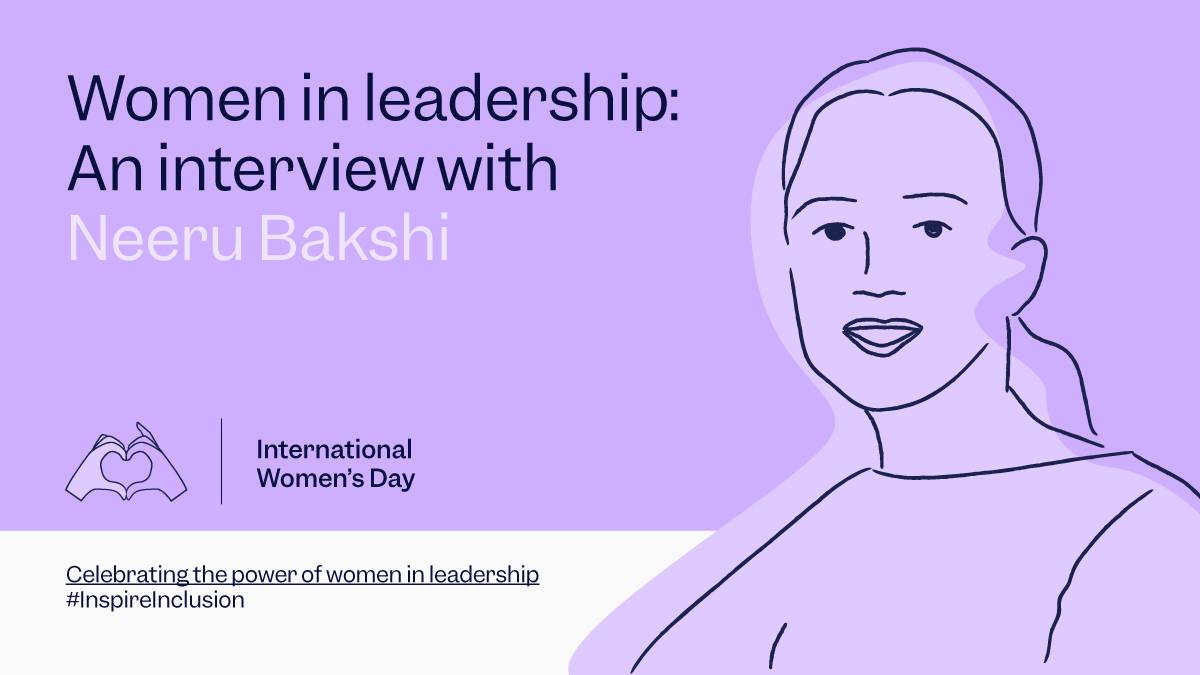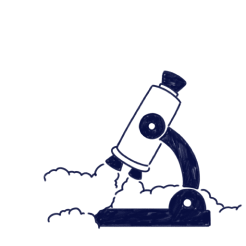
We spoke with our Chief Quality Officer to explore strategies for fostering inclusion within the workplace.
With over two decades of industry experience, Neeru Bakshi leads the Quality Management Department at Scilife as the Chief Quality Officer.
Her responsibilities encompass all aspects of quality procedures, internal and external audits, events, and the validation of all Scilife modules. Neeru ensures these processes comply with regulatory requirements, such as 21 CFR part 11, and she addresses customer inquiries regarding validation packages or regulatory standards.
As part of our interview, we discussed her views on gender imbalance, her experiences overcoming obstacles, and her ideas about how to foster a more inclusive and diverse workplace.
According to McKinsey, due to gender disparity in early promotions, men end up holding 60% of manager-level positions in a typical company, while women occupy 40%. What factors do you think have caused a gender imbalance in the workplace, specifically amongst senior leadership roles?
There are several key factors contributing to the gender imbalance in the workplace, particularly when it comes to senior leadership roles. First and foremost, there's a noticeable lack of skilled women within organizations who are available or considered for these top positions.
From my observations and experiences, another contributing factor is the mindset that women may not be able to fulfill extensive travel requirements or handle senior leadership responsibilities due to various concerns, including safety, maintaining work-life balance, and networking. There's also a perception perhaps that women won’t be able to handle a senior leadership position and be adept at making decisions.
Furthermore, I would say that most women prioritize family over their careers, even if they possess the necessary skills. The added burden of household responsibilities, which often falls more heavily on women, can also hinder their professional opportunities.
Additionally, there's a tendency within corporate cultures for people to favor candidates who are similar to themselves. This means men in leadership positions might be more inclined to promote other men over equally qualified women. While this isn't universally the case, it represents a notable factor in the perpetuation of gender disparity at the senior leadership level.
Have you faced any barriers in your career due to being a woman? If so, how did you overcome them?
I personally never let anyone become a barrier to my progress. I've never had a victim mentality mindset. I choose to see failures and criticism as opportunities to improve. So, I continued to advance, steering my career with intention.
In the early part of my career, while working on a global implementation, it didn't occur to me at the time, but looking back, I realize that I was the only woman working on the project. However, this position never stopped me from growing professionally. This was likely because I never saw myself as a victim.
There were cases, indeed, when I might have missed out on opportunities or was not considered for certain roles, possibly due to being a woman. Perhaps assumptions about my ability to travel were made, suggesting it would be more challenging for me.
However, I never accepted these situations as barriers and there were men who gave me the opportunities that have allowed me to get to where I am now. My philosophy has always been to focus on self-growth and maintain an objective viewpoint rather than succumbing to a mindset that could limit my performance.
Everyone faces challenges, which can vary significantly from one region or country to another. The nature of these challenges might be different in India compared to other countries.
How can leaders and organizations more effectively challenge and change these barriers to ensure inclusion?
Adopting a policy to ensure an equal ratio of men and women within the organization, as part of HR strategy, is essential. The aim would be to achieve a 50:50 ratio, allowing exceptions only when specific roles cannot be filled due to a lack of qualified candidates in a particular region, potentially putting the business at risk.
Such a policy addresses current stereotypes in certain professions, where there is a mentality that men are more suited to problem-solving jobs and women to crafts or arts. That stereotyping needs to go and everyone should be encouraged to choose their profession based on their interest and not on their gender. This goes not only for women but also for men who might shy away from professions with a higher female ratio due to stereotypes that label jobs as suitable for one gender over the other.
Furthermore, implementing a blind recruitment policy at the HR and management level could be transformative. This involves removing personal information, such as names and genders, from resumes during the initial stages of recruitment. By focusing solely on skills and qualifications, organizations can mitigate the impact of unconscious bias, ensuring hiring decisions are made based on merit.
How important have allies been in your career, and what actions can everyone take to be a more effective ally for women?
Throughout my journey, I have received significant support from several individuals, particularly my family, who have been instrumental in allowing me to take risks and achieve things that might have otherwise been unattainable without their backing.
Professionally, when reflecting on my experiences when I started my journey in Computer Systems Validation, I realized that I was the only woman involved in an early global project. Despite being the only female team member, I found allies among the senior executives. Even though the team dynamics were challenging—I was in a junior position tasked with quality assurance while interacting with directors—I received a lot of support. This support wasn't solicited; it was proactively offered to ensure that I could be productive without feeling discriminated against or out of place. The CIO would intentionally come to my desk, in the presence of senior colleagues, to affirm my role and contributions, showing colleagues that they have to listen and respect me.
I think to be a better ally, it is necessary to treat underrepresented groups not as underrepresented, but as equals. If they are treated as if they have a disadvantage, they will automatically align their perspectives to fit that narrative. Senior executives should also make sure that regardless of the proportion of men and women in the workplace, everyone should be treated equally and be given equal opportunities.
In your opinion, what’s a good indicator to measure gender equality in the workplace?
In my opinion, a key indicator of gender equality in the workplace is the ratio of men to women, particularly noting the presence of women in senior leadership roles. It's insufficient to merely achieve a balanced ratio across the organization if, at the leadership level, only men are represented.
Additionally, the implementation of country or state-specific policies for women, like the POSH policy in India, is crucial. These policies should not only be in place but actively implemented at the organizational level. Conducting regular interviews with women in the organization to assess their awareness and experiences regarding these policies is also vital. It's important to ensure that women are not only aware of these policies but also feel supported and able to voice any challenges they might encounter. An organization that actively engages in these practices offers a good indication of its commitment to gender equality.
Reflecting on your career, what stands out as your biggest achievement or the accomplishment you're most proud of?
Reflecting on my career, my most significant achievement is being promoted from QA Manager to Chief Quality Officer within just one year. This advancement was particularly meaningful to me because it reflected management's trust and belief in my ability to fulfill this role effectively. Additionally, whenever Filip introduces me to anyone, whether a customer or someone else, he reassures them by saying, "You are in good hands." This type of praise is really encouraging.
So, achieving this position at Scilife stands out as a notable achievement. Moreover, after decades in the industry, my greatest achievement is not giving in to gender disparity and societal norms. Despite initially doubting my ability to work independently or remain in a job as a woman, I have grown and am proud of this progress. Throughout my career, I've viewed challenges as opportunities for personal and professional development, even when my contributions were not fully recognized, and I never adopted the victim mentality.
What would your advice be to women who are trying to achieve their career ambitions?
I would advise them to recognize their strengths and accomplishments and not hesitate to showcase them. I would also tell them that believing in yourself is the first step towards convincing others of your capabilities. And risks are bad only if they are not calculated.
People often worry about taking opportunities because of the challenges they’ll have to face. However, if the risk is well-calculated, then it's not detrimental; rather, taking risks is the best way of growing as a person. I would say that even if you don’t have a support system, have faith in yourself and have faith in your plan.
Is there anyone who has inspired you in your career?
My mom will forever be my inspiration. She always encouraged me to study and be independent.
She taught me the importance of being independent and I took that lesson to heart. During a time when it wasn’t common for women to work in India, my mother ran a small business, crafting clothes to financially support our family. Her principles and work ethic have allowed me to reach a point where I can help other women facing similar problems.
So, yes, she will always be the person who inspires me, and I constantly remind myself of the lessons she taught me.
Why is it important for all companies to strive to have good gender diversity both within their workforce and among their leadership?
That’s a very good question. If it's possible to have men fill all leadership positions, why would that be considered a drawback? There is a very good reason. It’s because in today's dynamic business environment, having a good mix of voices at the table is like having a secret sauce for success.
When you have people from different backgrounds, genders, and experiences collaborating, you tap into a wealth of perspectives. This diversity inspires innovation and creativity, something every company needs to stay ahead.
What does International Women’s Day mean to you?
It's a day to acknowledge and celebrate the achievements of women across various fields and to encourage continuous dialogue, action, and collaboration to achieve lasting change. It highlights the importance of recognizing and appreciating women's contributions, particularly in areas where they might not usually receive the recognition and appreciation they deserve.





